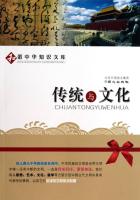Michael, in desperate conversational efforts next morning at breakfast, mentioned the fact that the German Emperor had engaged him in a substantial talk at Munich, and had recommended him to pass the winter at Berlin. It was immediately obvious that he rose in his father's estimation, for, though no doubt primarily the fact that Michael was his son was the cause of this interest, it gave Michael a sort of testimonial also to his respectability. If the Emperor had thought that his taking up a musical career was indelibly disgraceful--as Lord Ashbridge himself had done--he would certainly not have made himself so agreeable. On anyone of Lord Ashbridge's essential and deep-rooted snobbishness this could not fail to make a certain effect; his chilly politeness to Michael sensibly thawed; you might almost have detected a certain cordiality in his desire to learn as much as possible of this gratifying occurrence.
"And you mean to go to Berlin?" he asked.
"I'm afraid I shan't be able to," said Michael; "my master is in London.""I should be inclined to reconsider that, Michael," said the father. "The Emperor knows what he is talking about on the subject of music."Lady Ashbridge looked up from the breakfast she was giving Petsy II. His dietary was rather less rich than that of the defunct, and she was afraid sometimes that his food was not nourishing enough.
"I remember the concert we had here," she said. "We had the 'Song to Aegir' twice."Lord Ashbridge gave her a quick glance. Michael felt he would not have noticed it the evening before.
"Your memory is very good, my dear," he said with encouragement.
"And then we had a torchlight procession," she remarked.
"Quite so. You remember it perfectly. And about his visit here, Michael. Did he talk about that?""Yes, very warmly; also about our international relations."Lord Ashbridge gave a little giggle.
"I must tell Barbara that," he said. "She has become a sort of Cassandra, since she became a diplomatist, and sits on her tripod and prophesies woe.""She asked me about it," said Michael. "I don't think she believes in his sincerity."He giggled again.
"That's because I didn't ask her down for his visit," he said.
He rose.
"And what are you going to do, my dear?" he said to his wife.
She looked across to Michael.
"Perhaps Michael will come for a stroll with me," she said.
"No doubt he will. I shall have a round of golf, I think, on this fine morning. I should like to have a word with you, Michael, when you've finished your breakfast."The moment he had gone her whole manner changed: it was suffused with the glow that had lit her last night.
"And we shall have another talk, dear?" she said. "It was tiresome being interrupted last night. But your father was better pleased with you this morning."Michael's understanding of the situation grew clearer. Whatever was the change in his mother, whatever, perhaps, it portended, it was certainly accompanied by two symptoms, the one the late dawning of mother-love for himself, the other a certain fear of her husband; for all her married life she had been completely dominated by him, and had lived but in a twilight of her own; now into that twilight was beginning to steal a dread of him. His pleasure or his vexation had begun to affect her emotionally, instead of being as before, merely recorded in her mind, as she might have recorded an object quite exterior to herself, and seen out of the window.
Now it was in the room with her. Even as Michael left her to speak with him, the consciousness of him rose again in her, making her face anxious.
"And you'll try not to vex him, won't you?" she said.
His father was in the smoking-room, standing enormously in front of the fire, and for the first time the sense of his colossal fatuity struck Michael.
"There are several things I want to tell you about," he said.
"Your career, first of all. I take it that you have no intention of deferring to my wishes on the subject.""No, father, I am afraid not," said Michael.
"I want you to understand, then, that, though I shall not speak to you again about it, my wishes are no less strong than they were.
It is something to me to know that a man whom I respect so much as the Emperor doesn't feel as I do about it, but that doesn't alter my view.""I understand," said Michael.
"The next is about your mother," he said. "Do you notice any change in her?""Yes," said Michael.
"Can you describe it at all?"
Michael hesitated.
"She shows quite a new affection for myself," he said. "She came and talked to me last night in a way she had never done before."The irritation which Michael's mere presence produced on his father was beginning to make itself felt. The fact that Michael was squat and long-armed and ugly had always a side-blow to deal at Lord Ashbridge in the reminder that he was his father. He tried to disregard this--he tried to bring his mind into an impartial attitude, without seeing for a moment the bitter irony of considering impartiality the ideal quality when dealing with his son. He tried to be fair, and Michael was perfectly conscious of the effort it cost him.
"I had noticed something of the sort," he said. "Your mother was always asking after you. You have not been writing very regularly, Michael. We know little about your life.""I have written to my mother every week," said Michael.
The magical effects of the Emperor's interest were dying out. Lord Ashbridge became more keenly aware of the disappointment that Michael was to him.
"I have not been so fortunate, then," he said.
Michael remembered his mother's anxious face, but he could not let this pass.
"No, sir," he said, "but you never answered any of my letters. Ithought it quite probable that it displeased you to hear from me.""I should have expressed my displeasure if I had felt it," said his father with all the pomposity that was natural to him.















